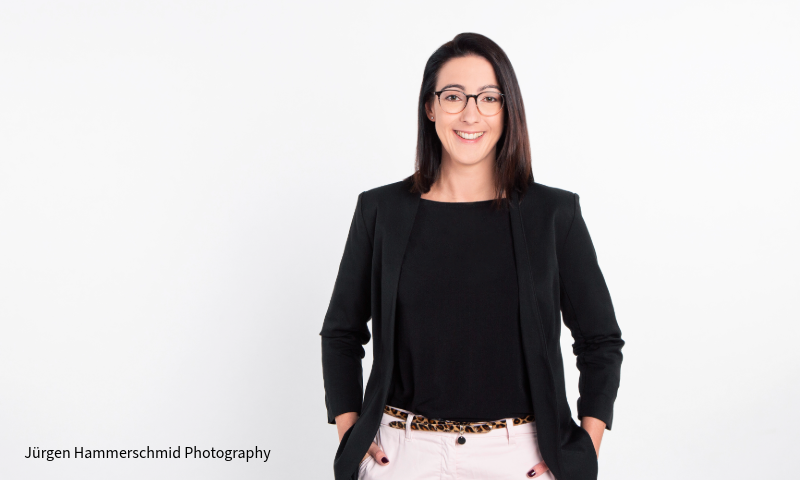Stephanie Ogulin is the founder of the management consultancy transformXP and co-founder of the transformation consultancy collectiv:a. The certified expert for Customer & Transformation Experience Design supports international SMEs and corporations in the continuously improving their customer value. Her references for customer-centric transformation include the pharmaceutical, airline, insurance, energy services, retail and FMCG industries. She enables leaders and their teams to identify innovation potential along the customer journey and transform it into successful brand, product and service experiences, operational strategies and market and revenue growth initiatives.
Recently, in an exclusive interview with CXO Magazine, Stephanie shared her career trajectory, the inspiration behind establishing transformXP, insights on gender equality and inclusion, her favorite non-academic book, future plans, words of wisdom, and much more. The following excerpts are taken from the interview.
Hi Stephanie. How did you first get into customer experience, and what inspires you to stay?
I have over 15 years’ experience of exploring new digital ways of creating business impact driven by customer interaction. I got my start in digital marketing, designing a web experience to inspire people to book a cruise (back when it wasn’t so common to book your next holiday online ;-)).
Later I moved into social media marketing, helping traditional brands engage with their customers through interactive platforms. Then I found that advising these brands on how to use customer insights to co-create new digital product and service experiences wasn’t just fun, it was really impactful for them. And combining my digital marketing, sales and communications skills with a deep knowledge of building new team structures and collaboration processes in volatile business environments was the start of my leadership career. Executives turn to me to get customer-centric transformation projects up and running, not just as token projects for the board. I create frameworks for them that aim to take the project and everyone involved to the next level, both in terms of content and new ways of working together.
What was the inspiration behind establishing transformXP? What is its mission and vision?
I have two main drivers in my professional life; I am passionate about experience design in the digital age: for (end) customers as well as for employees undergoing transformation in international companies and I help leaders and their teams to realise their full potential, to know their own value contribution and to improve every day at their own pace.
The combination of both passions leads me to building my own brand transformXP. The “XP” stands for experiences. So > transform experiences. transformXP supports strategists: who know that new ways of human-centred action are needed to move forward. Decision makers: who believe that customer centricity ensures long-term success. Future Shapers: who believe in exploration and experimentation to increase the potential for innovation Let me share the purpose of transformXP with you:
transformXP purpose: Because fundamental change requires individual experiences; the techno-social transformation is gradually changing the behaviour and expectations of customers and employees likewise. Companies are challenged to listen carefully to how they can adapt their offer (brand, product & service) to the new needs and thereby create a better customer experience. Only those, who succeed in systematically recording and analysing customer expectations and transforming them into inspiring experiences along the customer journey, will be successful in the long run. This requires openness and courage to question the existing and explore new things, because customer and employee centricity requires honest interest, flexibility and responsiveness and the conviction to really shape this culture change in a meaningful way. I strongly believe that the continuous improvement of the customer and employee experience is one of the most important business drivers.

How do you stay current with emerging trends and innovations in customer experience, and what resources do you rely on for inspiration and guidance?
As a university lecturer in master classes for CX, Channel Management, and Experience Marketing, I stay current with emerging trends and innovations by closely following the latest academic literature, theories, and real-world case studies. This ensures that my students are equipped with the most up-to-date knowledge and skills in the field.
Additionally, as an active member of the certified customer experience professional association, I have the privilege of regularly judging international and European CX awards. This gives me firsthand access to a wealth of benchmark examples that I can share with my clients to help them improve their own customer experiences (naturally taking into account confidentiality clauses).
For inspiration and guidance, I also enjoy reading forward-thinking magazines like brandeins and Harvard Business Review. These publications often feature thought-provoking articles on cutting-edge approaches and innovative strategies from various industries, which can provide valuable insights and new perspectives.
What are your thoughts on gender equality and inclusion? Do you think there is a gender bias in your industry?
Yes, there is a gender gap in CX. While progress has been made, there’s still a notable gap in how gender is often represented and understood, for example in customer personas. Customer personas can sometimes perpetuate stereotypes, leading to biased assumptions about customer preferences and behaviour. A lack of diversity in research teams can mean that the specific needs and preferences of certain customer segments, such as women or non-binary individuals, are overlooked.
That’s why we should strive for inclusive persona creation. They help companies tailor their products and services to a wider range of customers, improving overall satisfaction. By understanding different customer perspectives, companies can identify new opportunities for innovation and growth.
Is there a particular person you are grateful for who helped get you to where you are?
There are three people in my life who have supported and pushed me in my personal development. My former boss, who gave me the freedom to grow, but at the same time set clear goals to achieve (which I exceeded). My business coach who helped me understand my personal strengths profile and introduced me to Human Design. And my ex-husband who supported my professional development from full-time, part-time and self-employment to full-time self-employment as my financial back-up (which I happily didn’t need).

What is your favorite non-academic book and why?
It’s an old book, probably from my grand-aunt, about a young woman who wants to be a professional ballet dancer. The book is beautifully written and describes quite well that you can achieve anything if you have a strong will, the discipline to train and work hard and if you believe in the power of manifestation.
What is your biggest stress reliever?
I don’t have “the” stress reliever. Living a healthy life is a daily practice and I wasn’t the best student. I am well on the way to understanding better what works for me. Taking care of my feelings and needs means balancing intense periods of work with sporting activities, energetic and manual activities for the mind, heart and soul.
Where do you see yourself in the next 5 years?
I continue to enjoy supporting customer-centric transformation projects in mid-sized companies and large international corporations. I continue to make a significant contribution to the CX maturity of these organisations.
The intelligent use of technology (AI) will help to ensure that managers and their teams can continue to focus on what they do best: transforming data-based potential with creative ideas into innovative opportunities to improve customer satisfaction. I design the necessary transformation processes and spaces!
In the future, I will not only share my conceptual and strategic strengths as a consultant and lecturer, but I would also like to contribute this knowledge as a member of supervisory/advisory boards in customer-centric institutions.
If you could give any advice to someone striving to be a CX Leader, what would it be?
I believe that customer and employee centricity require a genuine interest in people, the ability to anticipate and adapt, to challenge existing processes and mindsets, and to be bold in trying new things.

